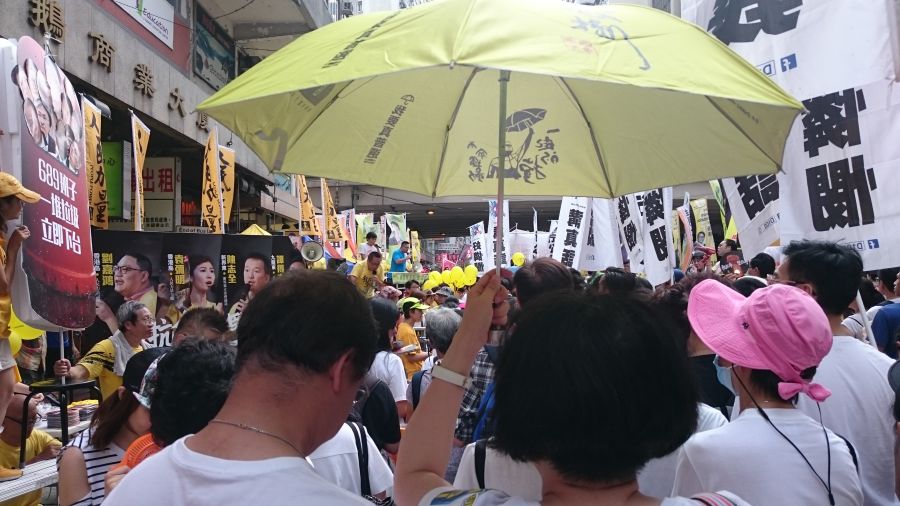Hong Kong politics
Hong Kong, the Special Administrative Region in the south of China, has seen a high number of mass protests in recent years. Whether commemorating the violent crackdown of the Tiananmen movement, fighting the proposed National Patriotic Education reform, engaging for electoral democracy during the Umbrella Movement or protesting against a proposed extradition bill – particularly young Hong Kong citizens resist not only local politics but express their discontent with the rule of the Chinese Communist Party in Beijing. The new National Security Law introduced in 2020 might have brought this to an end.
In 1997, Hong Kong was handed over to China after around 150 years of British colonial rule. In an international legally-binding treaty, China guaranteed a “high degree of autonomy” for 50 years until 2047 to Hong Kong and established the principle of “One Country, Two Systems”. Under this framework, Hong Kong must retain basic civil liberty rights, an independent judiciary, a freely convertible currency and a fully liberalized capitalist economic system. Furthermore, Hong Kong’s Basic Law provides a framework for political reform that should ultimately lead to a more democratic polity.
For the government of China, Hong Kong is of enormous symbolic importance. The city is in the country’s periphery; but Hong Kong stands for China retrieval of control over its territory. China is back on the world stage growing strong again after its past experience of semi-colonization. Hong Kong is the symbol of this development.
The particular international relevance of Hong Kong’s contentious politics lies in the fact that - at least until 2020 - Hong Kong has been or still is the only free society on Chinese soil and under the effective control of the Chinese Communist Party. Studying China’s Hong Kong politics provides the best insight how rising authoritarian China treats established free societies. The National Security Law has brought this to international attention.
In my work, I cover the contentious politics of Hong Kong. I trace the root causes and mobilization of Hong Kong’s pro-democratic social movements, including political values (democracy and human rights), economic and social grievances (inequality and housing) as well as cultural and identity issues (post-colonial identity and anti-Chinese sentiments). At the same time, I investigate the strategies and practices of pro-Chinese local government as well as Beijing’s Hong Kong policy. Legal issues are also a part of my research.
Of particular importance have been several field trips including a multitude of talks and interviews with supporters, activists and politicians of both the pro-democracy and the pro-Chinese blocks.
Apart from a number of articles and regular presentations addressing the general public as well as academic audiences, Hong Kong politics has been a case study of my PhD.
Related publications:
Publication, monograph: 2022: Understanding China’s Foreign Policy Contradictions. New York: Oxford University Press.
Publication (in Swedish): 2020: Hong Kong – protesternas stad. Världspolitikens Dagsfragor. Stockholm: UI.


